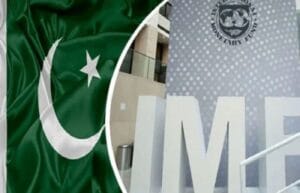Pakistan Excluded from IMF Board Calendar: A Setback in Critical Funding Talks.
In a surprising turn of events, Pakistan has once again found itself absent from the latest calendar of meetings by the Executive Board of the International Monetary Fund (IMF). This development has sparked concern among financial experts and political observers, as Pakistan is currently facing severe economic challenges and is highly dependent on international financial support to stabilize its economy.
Background on Pakistan’s Economic Situation.
Pakistan has been grappling with economic instability for years, which has been exacerbated by global challenges like the COVID-19 pandemic and the Russia-Ukraine war, as well as domestic issues such as rising inflation, depleting foreign exchange reserves, and a persistent trade deficit. The country entered into an agreement with the IMF under the Extended Fund Facility (EFF) in 2019, aimed at securing loans to address structural imbalances in its economy.
However, Pakistan’s repeated delays in implementing key reforms, coupled with political uncertainty, have strained its relationship with the IMF. Despite several rounds of negotiations and promises of reform, the country has struggled to meet the IMF’s stringent requirements, leading to a delay in the disbursement of crucial funds.
Pakistan’s Ongoing Negotiations with the IMF.
Pakistan’s absence from the IMF board meeting calendar indicates a potential breakdown in the ongoing negotiations. Earlier this year, there were hopeful signs that the country would secure the next tranche of its loan, but recent developments suggest that progress has stalled.
The IMF typically schedules meetings with member countries to discuss disbursements, loan extensions, and economic performance reviews. Pakistan’s exclusion from the current list raises concerns that the country may not receive the urgently needed financial support in the immediate future.
Implications for Pakistan’s Economy.
The exclusion from the IMF calendar could have far-reaching implications for Pakistan’s economic stability. Without the next tranche of funds, Pakistan risks further depletion of its foreign reserves, which are already at critically low levels. This could lead to a depreciation of the Pakistani rupee, higher inflation, and increased difficulties in managing its debt repayments.
Moreover, without IMF backing, Pakistan may struggle to secure additional funding from other international lenders or investors. The IMF’s endorsement is often seen as a seal of approval, giving confidence to other financial institutions that a country’s economic policies are on the right track.
Political and Social Ramifications.
The economic uncertainty fueled by Pakistan’s exclusion from the IMF calendar could also have political and social ramifications. Rising inflation and unemployment have already led to widespread public discontent, and the lack of progress in securing international financial assistance may further erode the government’s credibility.
In the face of these challenges, the Pakistani government may be forced to implement tough economic reforms, such as subsidy cuts and tax hikes, which could lead to additional social unrest. On the other hand, failing to address the IMF’s concerns could result in prolonged economic stagnation.
What’s Next?
Despite this setback, Pakistan’s leadership has indicated its commitment to continuing negotiations with the IMF. Finance Ministry officials have expressed hope that Pakistan’s exclusion from the calendar is a temporary issue and that discussions will resume soon.
However, time is of the essence. Pakistan’s economy is in a precarious position, and further delays in securing financial support could lead to even more severe consequences for the country’s economic and social stability.
As Pakistan continues to navigate these turbulent times, the next few weeks will be critical in determining the future trajectory of its economy and its relationship with the IMF.



